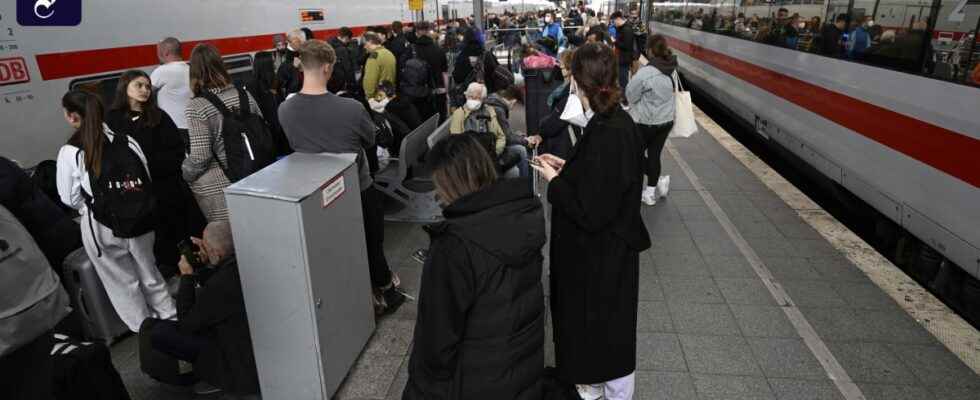NAccording to Federal Transport Minister Volker Wissing (FDP), the major standstill in northern German rail traffic was caused by a malicious attack. “We know that the cables were deliberately cut at two different locations in Germany,” said the FDP politician on Saturday afternoon. “It is clear that this is a targeted and willful approach.”
However, the background to the crime is not yet known. The federal police are investigating. Thanks to Deutsche Bahn’s rapid crisis management, in coordination with his ministry, train traffic was able to resume in the morning. Deutsche Bahn had also previously spoken of sabotage.
Interior Minister Nancy Faeser (SPD) and Defense Minister Christine Lambrecht (SPD) promised a quick clarification, but were reluctant to comment on the background. “Should there be an anti-constitutional background, the Attorney General will investigate,” wrote Justice Minister Marco Buschmann (FDP) on Twitter.
Crime scenes in Berlin and North Rhine-Westphalia
The federal police responsible for the safety of rail traffic gave the first details on Saturday afternoon and spoke of external influence. “We have a crime scene in Berlin-Hohenschönhausen,” said a spokesman for the Berlin Federal Police Directorate of the German Press Agency. “Another is in North Rhine-Westphalia.” From security circles it was said that so-called fiber optic cables were deliberately damaged at the Karower Kreuz in Berlin and in Herne in North Rhine-Westphalia. The backup system also failed. The investigations would be carried out at full speed in all directions. “Currently, a targeted external influence on the cable of the Deutsche Bahn can be assumed,” said the spokesman. For reasons of investigation tactics, he could not provide any information on further details.
According to media reports, the attacks took place at Karower Kreuz in Berlin and in Herne in North Rhine-Westphalia. The backup systems of the train also failed, according to security circles.
Green leader Omid Nouripour called for increased investment in protecting critical infrastructure. “Anyone who systematically attacks our country’s critical infrastructure will receive a resolute response from our democracy. We won’t be intimidated,” he tweeted. The previous means for protecting the infrastructure were not sufficient.
In recent months there have been repeated attacks on the railway, for example by left-wing extremists. There were also disruptions caused by cable theft. However, since the Russian attack on Ukraine and the leaks in the gas pipelines through the Baltic Sea, there has been growing fear of targeted attacks on critical infrastructure in Germany, including by foreign actors. In the morning, when asked about external influence, the railways said that it was a technical fault. This was apparently caused by the cable damage, which paralyzed radio traffic. According to security circles, the simultaneous sabotage of two cables indicates at least a certain level of expertise.
